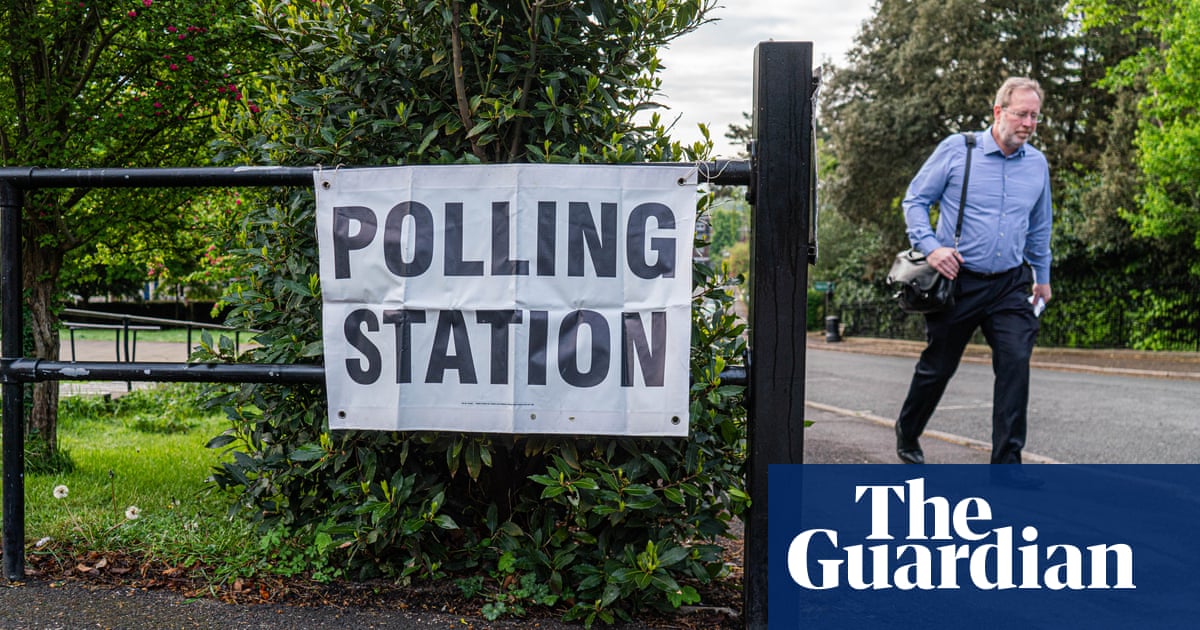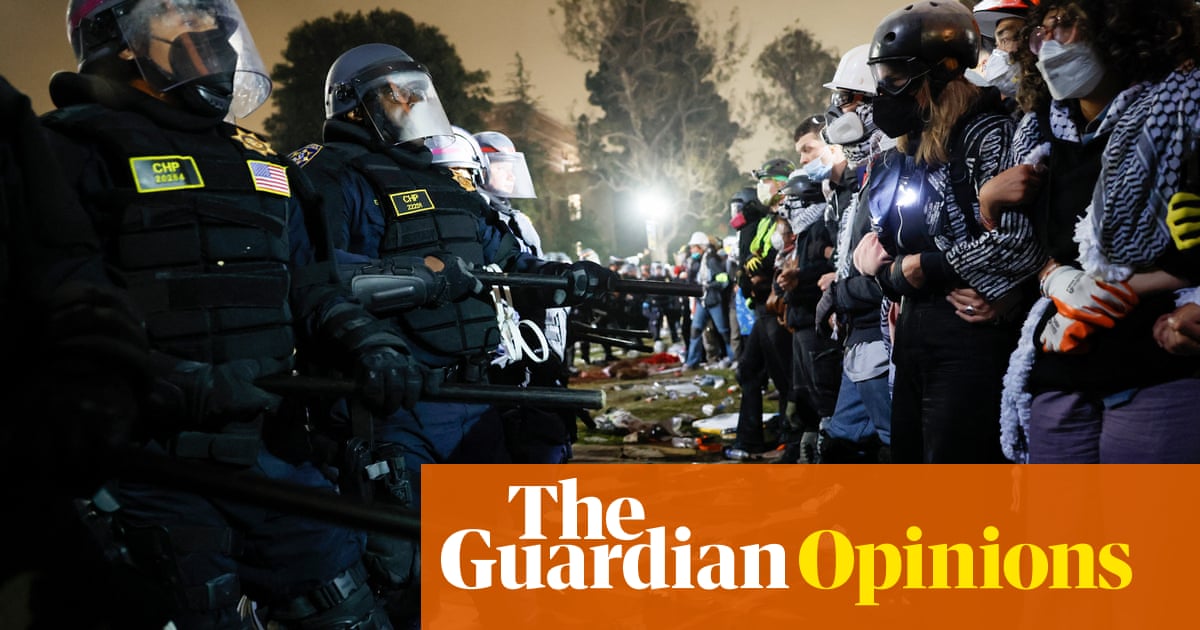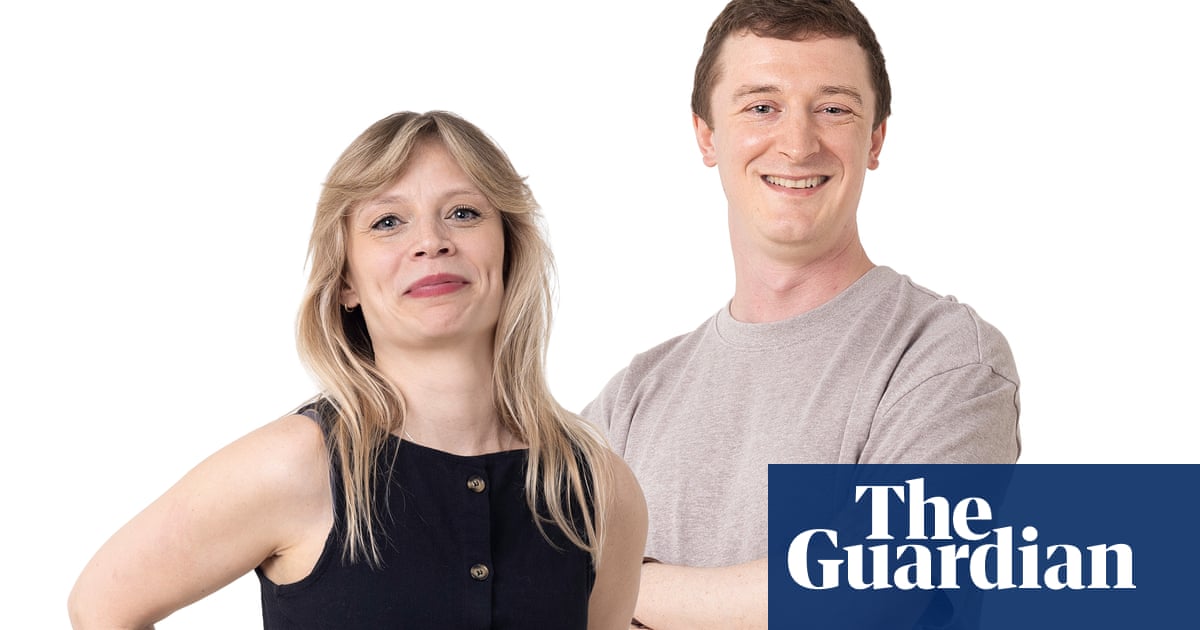If escaping the world by running for the hills looks increasingly attractive to many of us – perhaps living on a commune – Patricia Arquette feels like that too. Head to the mountains, she says. “Plant seeds and farm.” But maybe not the commune part – she lived in one as a child and it wasn’t always utopian. If our conversation is more dystopian than usual, it’s probably because we’re talking about Severance, the hit Apple TV+ show now in its second season. In the first series, we were introduced to Lumon Industries, where some workers, tasked with doing something unknown but probably malevolent with data, were willingly “severed”; their work selves detached from their outside selves, with no memory between the two. If the drama started as an off-kilter take on work-life balance, it soon morphed into something much darker.
Arquette plays Harmony Cobel, an icy and (mostly) controlled senior manager at Lumon before she was fired, then rehired. In the outside world, she is Mrs Selvig, neighbour of Mark, another Lumon employee (he is severed, she isn’t, and he doesn’t know she is his boss). Arquette wouldn’t say she likes Cobel as a character. “I feel sorry for her, in a way,” she says. “To be so indoctrinated by a thought system or organisation, whether it’s a religion, or a corporation or a military. Obviously, she’s done some things that are reprehensible, but like all people who do bad things, they always have reasons, excuses, for why they needed to do that thing.”
A forthcoming episode, which Arquette can’t talk about, explains a lot about why Cobel is as she is. It’s intense – the flashes of almost violent emotion we’ve already seen come out in a deluge – and Arquette is typically brilliant. It reinforced her sympathy for the characters. “I kind of feel sorry for everyone. There’s a lot of self-deception, a lot of wanting to belong, of wilful ignorance – and then just a lot of trickery and deception. That is never good.”

Arquette was intrigued by Severance – she hadn’t done sci-fi before, and wanted to work with Ben Stiller, who directs most of the show, and with whom she first worked on the 1996 film Flirting with Disaster. The weirdness of the drama appealed, and she had no idea if it would be a hit. But then, you rarely do, she says. When she did True Romance, the 1993 Quentin Tarantino-scripted film “it was a bomb”. Then it picked up a cult following and cemented Arquette as a 90s indie cinema queen. “You never know how anything’s going to be, you just try to make something good.”
She was drawn to the idea of “divided” people, and different selves within one human being. “I really feel like it’s a huge problem in the world. You read about it every day.” The moralistic church leader who is also abusing children, she says, or people who have two separate families, each a secret from the other. Even those who have affairs. “There are so many things people are doing, and they seem comfortable living these alternate realities … Lumon is kind of a corporate personification of that.” Humans, she says, “I guess just are a disaster”. She laughs.
When Severance started in 2022, the real world’s tech overlords still had a vague appearance of decency. Elon Musk hadn’t implanted a chip in someone’s brain and AI didn’t seem like an existential threat. “It feels weird already, and we’re about to go into a weird world,” says Arquette. Things we wouldn’t have dreamed of before will become normalised. Look, she says, at how “people became emboldened to be mean behind their computers, they can just let their meanness out”. How might we behave in virtual reality? It is enough to make her want to run the other way to that mountain, to plant seeds and farm.
As for the current political situation in the US, Arquette, who describes herself as an activist, says she is “horrified about a lot of the things” that have swept in with Trump’s second presidency – racism and dismantling of LGBTQ+ rights, the attacks on institutions. On transgender rights, which President Trump targeted soon after taking office, it is “terrifying”, says Arquette; her sister Alexis, who was an actor and activist before her death in 2016, was trans. “The whole thing is dehumanising, nightmarish. Women’s rights are also on the chopping block, state after state. It just really breaks my heart.”

Earlier this month, Trump purged the board of the John F Kennedy Center for the performing arts, the leading arts venue in Washington DC, which receives federal funding, and became its new chair, warning that the centre was “not going to be woke”. Does Arquette worry about the sort of stories that will now be told – or, more importantly, won’t? Yes, she says. “For maybe the last 10 years, there was a serious movement for inclusivity and diversity, and what are the stories of these artists? It makes the arts richer.”
It was perhaps inevitable that Arquette became an actor, like all four of her siblings, including Rosanna and David. Her father, Lewis Arquette, appeared on the Waltons, her grandfather, Clifford, was a comedian. “I’m a fourth-generation actor, so I grew up with it, and it was part of the way that we communicated as a family and something we really valued.” In her career, Arquette has worked with leading directors including David Lynch, Martin Scorsese, Richard Linklater (she won an Oscar for her role in his film Boyhood) and Michel Gondry. Her life outside work has been just as full and varied. Her mother, Brenda, was an actor and artist; she was Jewish and Arquette’s father converted to Islam. Arquette spent her teen years in Los Angeles, going to punk clubs (though she says she was “more new wave”). At 20, she became a single mother when her son was born. Later, she married Nicolas Cage; they divorced after six years in 2001, and she went on to have a daughter with her second husband, the actor Thomas Jane. Activism has been part of her life; she used her Oscar acceptance speech in 2015 to call for equal pay for women.

Arquette was reportedly writing a memoir a few years ago but it hasn’t materialised. She’s still writing it, she says. “It’s just so vulnerable, I guess, writing.” She worries nobody will want to read it. “There’s that little inner critic. You have it with acting, but you also have it with everything. I think people struggle with the inner critic all the time, and it really can hold you back. Probably it’s the main thing that does hold you back.” Does she still hear it? She’s an Oscar-winner! “Yeah, I’ve always had that, I think I always will. It’s a lovely thing to win an Oscar, but it’s not a fundamental change to who you are or your own insecurities.”
The Arquette family lived for a period on a commune in Virginia when she was a child. What values from that time have stayed with her? A love of nature and “a relationship with the dirt and the soil, lying on your back and watching clouds, looking at stars and watching meteorites. Climbing trees when the first cherries come out. Quiet and solitude too – I’m comfortable with quiet and solitude.” That period taught her that life is “not about material objects or material success, but a community and connection that goes beyond all of that. Art was a big part of that.”
It wasn’t all idyllic – it was a community of humans, after all, and as we have already established, humans are a disaster. Arquette says she was mostly insulated from any tensions as a child, but “it started to become obvious, especially as time went on, that there were issues. Like, we were all poor.” There were resentments about who contributed more financially than others. “My dad said: ‘You try to create this ideal society, and then you bring in the seeds of society with you.’ You’re not escaping society.”

When the family moved to Los Angeles, it was a culture shock. She remembers being asked by a child at school what kind of car her dad drove; she had no idea there were different models, and what that meant. “These jeans are better than those jeans, this watch is better than that watch. I really didn’t understand any of that. I think I kept that with me. I appreciate beautiful things – don’t get me wrong – but I also understand it doesn’t matter.”
Did that drive her career decisions? Arquette’s first few films were indies – perhaps she wasn’t bothered about earning money? Not so, she says. “For sure, I wanted to make lots of money because, being a single mom at 20, I know how scary it is when your rent’s due, or your baby needs to go to the doctor and having to borrow from people. Making money was very important to me. I wanted to work with great directors and interesting material, but sometimes you just have to pay your rent and you go for the opportunity, whatever it is.” That said, as her career started to take off after True Romance, Arquette says she turned down more commercial lead roles. “They were boring parts, it felt not that fun to play. I wasn’t interested in the girlfriend parts.”
Navigating the film industry as a young woman wasn’t much different from anywhere else, she says. “Honestly, the grossest things that have happened to me did not happen in this business. I grew up at a time when the whole world was pretty blatantly creepy.” You had to be tough, she says, to cope with “racy jokes and people commenting on your body, or even brushing past you or touching you in a certain way. I would have gone crazy if I took it all personally. I feel like my whole life was a bit of a booby trap of all of that stuff.” She clarifies: “My younger life. Now, no. When you’re old, you’re OK.” She laughs. Not that Arquette, who is 56, considered herself beautiful in her 20s, she says, but she was aware that others thought so, “and how dangerous it was. My beauty in the world was dangerous for me, and scary.”

Photograph: Pictorial Press Ltd/Alamy
She has always been interested in challenging the idea of beauty, she says – this was a child who refused to have her teeth straightened. “Looking certain ways really impacts how my characters are treated in their lives, and how they perceive the world … This is part of how I tell the story of different human beings.” In Boyhood, it was striking to watch herself age in real time over the 12 years it took to shoot, but it would have made no sense for her character, a struggling single mother, to look like a Hollywood star, facelift, expensive tweaks and all. In Escape at Dannemora, the television crime drama directed by Ben Stiller, Arquette looked unrecognisable as prison worker Joyce “Tilly” Mitchell . Is it more acceptable for female actors to age on screen now? “I think there’s definitely a lot of people that haven’t done [cosmetic surgery], and they work a lot, and they are beautiful,” says Arquette. “And there are some people that have done that work, and they are beautiful and they also are working. There’s not one group that I don’t respect as women.” Of course she has felt pressure, she says. “As a feminist, I feel like everyone gets to do whatever the fuck they want with their own face and body. I’m not saying I won’t ever have a facelift.” It’s just that in her varied career, it “hasn’t made sense in any of the parts that I’m playing”.

Arquette was one of the first film stars to move to TV, playing the title role in Medium, the supernatural crime thriller. People couldn’t understand it, she says. “‘Why did you go to TV? You used to make movies’,” she mimics. “But I was interested in trying to see if you could do good work on TV.” She foresaw that the kind of mid-budget and arthouse films she loved were in trouble, and wasn’t snobby about appearing on network television. “My great-grandparents were in vaudeville, and I thought: why can’t we entertain the masses?” Anyway, by then she was in her mid-30s and wasn’t finding many fulfilling film parts. “You’re not the object-of-desire girlfriend age any more, but the wife parts are super boring. TV was different – it was interesting, the parts for women.”
For the last few years, although not deliberate, Arquette has been “exploring the shadow side of women”. She has done it in Escape at Dannemora and The Act, in which she played a mother with Munchausen’s Syndrome by proxy, and even Severance. In her own life, there has been a shift, too. “My kids are grown up now. I’m not in a relationship. I’m not sure, politically, what’s happening in America. I’m like, where do I want to live? I’m in a weird moment in my life where I don’t know what I want to do.” Far from making that sound disorienting or paralysing, Arquette makes it sound full of possibility.

.png) 2 months ago
20
2 months ago
20













































